Reading Like A Historian: Strategy – Repetition
Program Transcript
Ziegler:
And what do you guess is the first thing that I’m going to do?
Students:
Source.
Ziegler:
What’s the first thing that I’m going to do?
Students:
Source.
Ziegler:
I’m going to source it. Alright, so I’m going go ahead…
Valerie Ziegler (Interview):
Repetitions is very important to the beginning of the Reading Like A Historian process, and I think it’s much in the way that we teach math, or the much way that we teach reading, right, that there’s a process to do that. So I use repetition often that, when we begin the process of sourcing documents, I have a poster in my room that has the sourcing questions, the students have the sourcing paper next to them, and every time I give them the document I say, “What’s the first thing that we do,” and they say, “Sourcing.” And it becomes sort of silly over time, but I repeat it over and over and over again, so that in the back of their heads they know that as soon as they get a document, they start sourcing.
Student:
So, this speech was delivered on… by Martin Luther King, obviously. It’s called “Beyond Vietnam.” And it was delivered on April 4, 1967… so, a year—exactly a year before he got assassinated.
Valerie Ziegler (Interview):
It’s not only “we know that we source,” it’s “what do we do when we source?”
Ziegler:
So, what’s the first thing I’m going to do when I source it?
Student:
“Who wrote it?”
Ziegler:
Who wrote it. Okay.
Valerie Ziegler (Interview):
And so I’ll say, “What’s the first question?” And I keep saying that over and over. “Who wrote it? When did they write it?” So that that repetition—it only becomes part—it becomes part of their… just how they they handle history, it becomes part of their routine.
Student:
It’s not like—not even the Gulf of Tonkin has happened yet, and it’s already saying to use military force against Vietnam. I think that this whole document’s going to be about going to war.
Student:
He’s the Foreign Affairs, so he’s pro-war.
Student:
Yeah.
Student:
No! But the Foreign Affairs is like…
Valerie Ziegler (Interview):
And I also noticed that that skill translates outside of the classroom. And that’s the importance of it, right? We want to do that when we read documents, but I want them to grab a newspaper, or I want them to watch a YouTube video, and I want them to think about those skills that I’ve repeated over and over for them. You know, that repetition’s really important: Who made this? Why did they make it? Who’s the audience?
#####

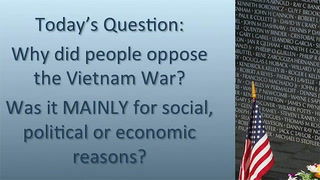
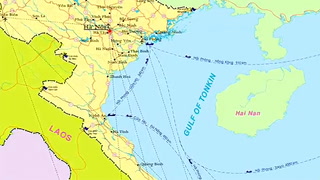
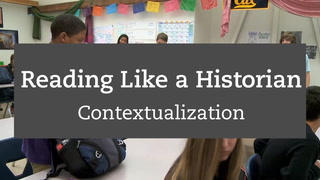
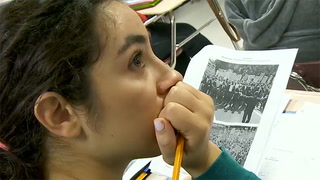
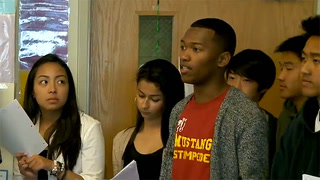
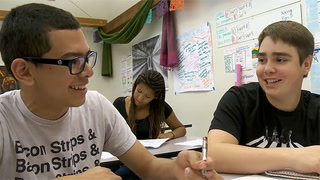
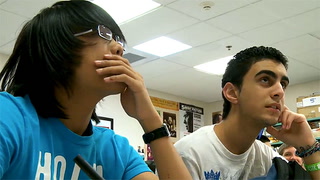
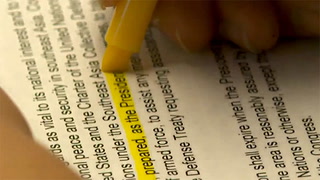
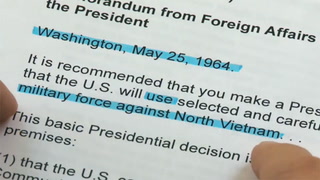
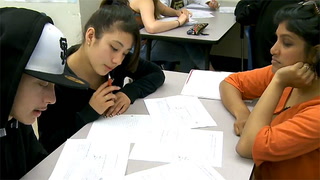
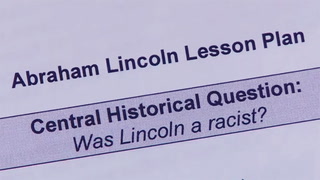








9 Comments
Donna Mau Feb 1, 2021 7:52pm
Important skill for all socail studies classes
Andrew Sutherland Nov 18, 2020 2:27am
I feel that this is a basic but benefical skill to teach students the essental skill of source analyzation. I realy like how they have the sheet to take out for themselves though. Making copies of repeated information will go to the student's learing benefit
gwen purvis Dec 7, 2017 11:11pm
Itzely Arzate Nov 20, 2017 2:42am
Laura Crownover Nov 23, 2016 11:08pm